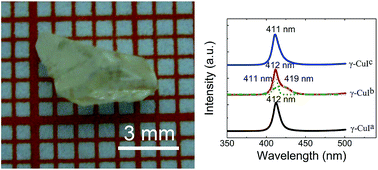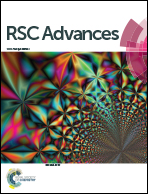Growth habit and optical properties of γ-CuI single crystals via a temperature difference method
Abstract
High quality γ-CuI single crystals have been grown using a mild temperature difference method with ammonium halide (NH4X, X = Cl, Br, I) as the co-solvents. The growth habit and optical properties of the crystals obtained using different co-solvents were systematically examined. By changing the type of co-solvent, the crystallites obtained display octahedron or tetrahedron morphology. All the as-grown crystals are of high transmittance (over 70%). Simultaneously, the crystals exhibit a sharp band-edge emission at around 411 nm, indicating that the interband excitonic transition emission occupies a dominant position in the spectrum and the intensity of defect emission is dramatically depressed. The possible mechanisms of how the co-solvent influences the growth habit and luminescence properties of the γ-CuI crystals are discussed. In particular, our results provide valuable clues to improve the luminescence performance of γ-CuI crystals.


 Please wait while we load your content...
Please wait while we load your content...